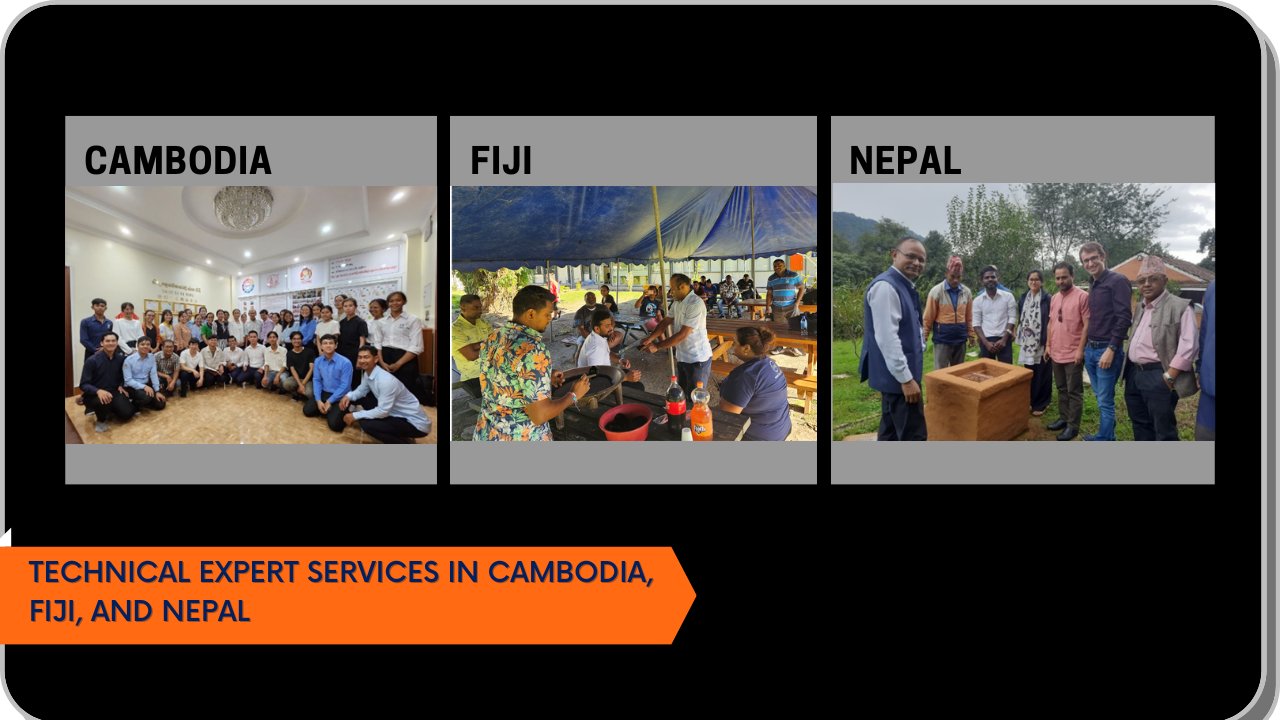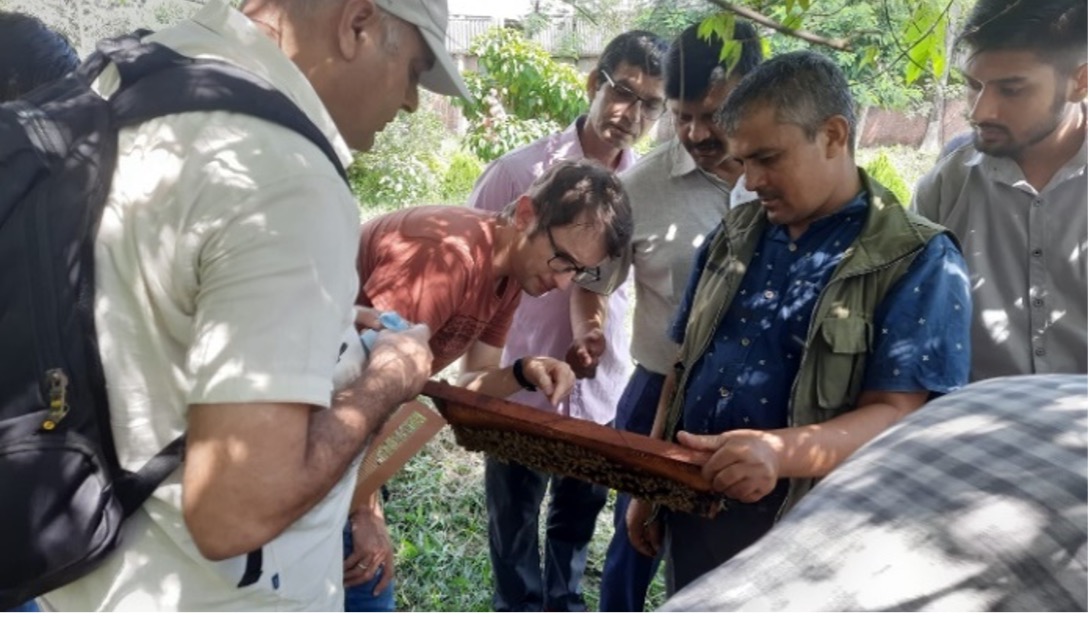
Select Page

The Asian Productivity Organization’s (APO’s) individual-country Technical Expert Service (TES) Program bridges gaps between immediate productivity challenges and global expertise. Designed to cater specifically to the diverse needs of APO member economies, seasoned experts are dispatched to provide tailored solutions, capacity-building sessions, and onsite evaluations. Three face-to-face TES projects were successfully implemented recently in Cambodia, Fiji, and Nepal.
With Cambodia’s booming food-processing industry and escalating demand for diverse food products, it is a struggle to compete with imports and exports to international markets, mainly due to the limited knowledge of food science, safety, and hygiene protocols. To increase awareness and develop consultants and trainers on food safety, a TES project on Training of Consultants and Trainers on HACCP and Food Safety Management Systems was organized in collaboration with the National Productivity Centre of Cambodia (NPCC), 11–22 September. A resource person from Malaysia designed and facilitated the 10-day program to enhance food safety competency and promote the adoption of best practices in the industry through lectures, group exercises, site visits, and work visits to local SMEs and established APO demonstration companies on food safety. Forty-six participants from the Ministry of Industry, Science, Technology and Innovation, related institutes, and food and beverage enterprises in Phnom Penh were introduced to applicable food safety statutory and regulatory requirements and standards for Cambodia, good practices in food safety/prerequisite programs and implementation, and hazard control and implementation. Group exercises on Food Safety Management System (FSMS) were conducted to illustrate real-world challenges.
 Cambodian participants in group exercises and discussions.
Cambodian participants in group exercises and discussions.
The National Training and Productivity Centre (NTPC), Fiji National University, aims to develop a pool of local professionals to amplify its productivity and quality improvement efforts. A TES project on Lean Six Sigma Green Belt was organized by the NTPC and APO Secretariat 4–8 September. Twenty-nine participants from the public and private sectors were trained in applications of the Lean Six Sigma Green Belt in workplaces to reduce waste. A resource person from India guided the sessions, covering topics such as Six Sigma fundamentals and statistics, planning and implementing Six Sigma Green Belt projects, and measurement system analysis and hypothesis testing. The NTPC stresses that the integration of Lean Six Sigma Green Belt practices in Fiji’s ecosystem can significantly enhance its economic growth and competitiveness, positioning it as a dynamic player in the global market.
 TES resource person from India Piyush Bhatia (center, standing), interacting with participants.
TES resource person from India Piyush Bhatia (center, standing), interacting with participants.
In Nepal, local farmers are venturing into beekeeping due to the favorable climatic conditions. While honey remains a popular product, the potential of other hive products remains largely unexplored by Nepalese beekeepers. To increase the productivity and sustainability of bee farms, a TES project on Innovative Beekeeping Practices for Sustainable Apiculture in Chitwan and Kathmandu was organized by the Faculty of Agriculture, Agricultural and Forestry University, NPO Nepal, and APO Secretariat, 25–29 September. It introduced the latest sustainable beekeeping techniques and practices, with an emphasis on the integration of modern technology such as AI, the IoT, and blockchains into apiculture. Sixty participants affiliated with faculties of agriculture and veterinary science and the Beekeeping Research Institute received insights from an international expert from Turkiye. Consultations with NPO representatives and government officers resulted in a joint collaboration agreement between Nepal and Turkiye to promote Nepalese honey products in the global market.

TES resource person Dr. Sedat Sevin (center), with local participants on a bee farm.
The tangible benefits of APO TES projects highlight the value of human capital development. By facilitating exchanges of knowledge and best practices, the TES Program not only addresses short-term challenges but also paves the way for sustainable growth, enhanced competitiveness, and upskilling of the workforce in APO member economies.